Shows
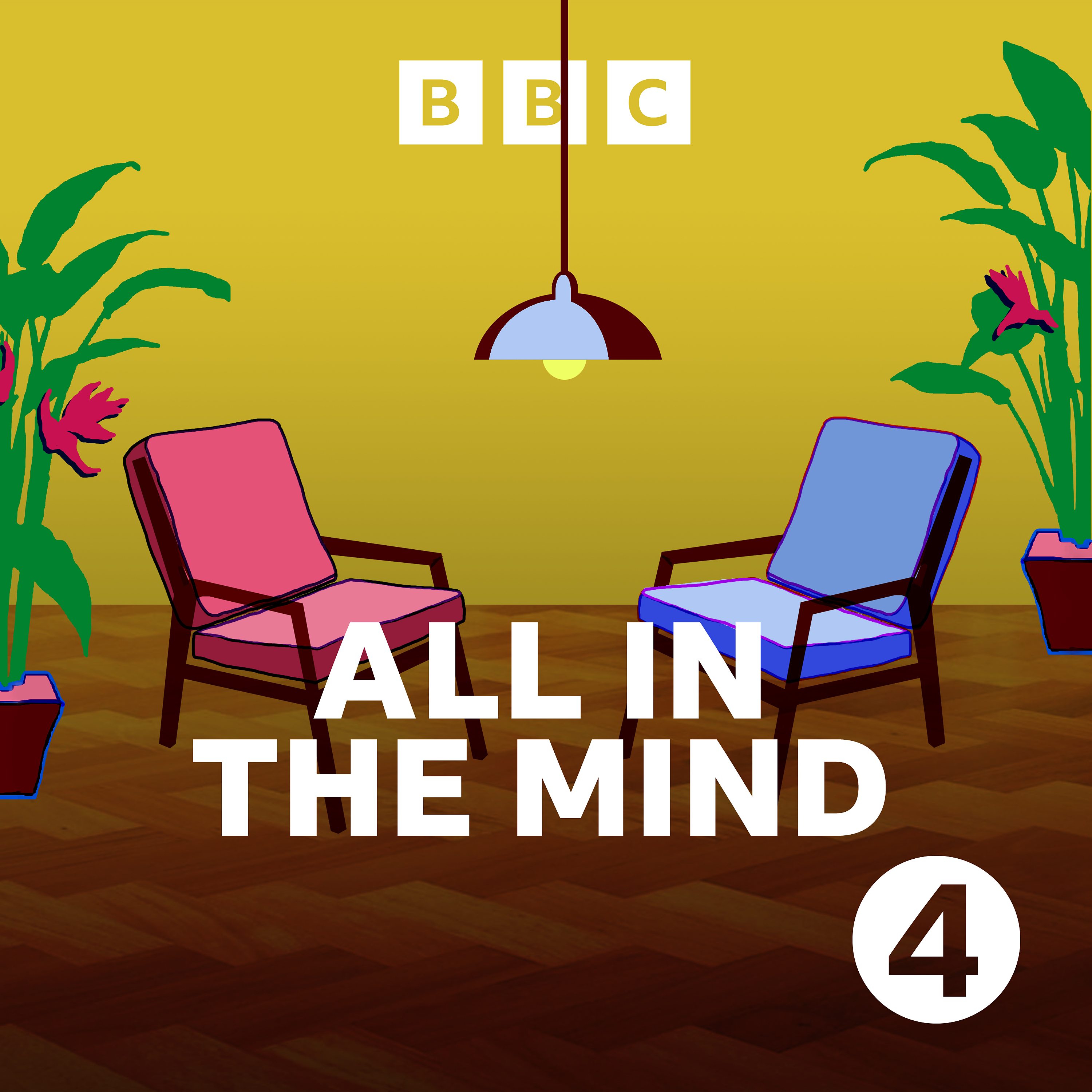 All in the MindHow much empathy should doctors have?A good bedside manner is a wanted quality in healthcare professionals. But as is performing procedures that can be painful or uncomfortable. As medical students train to become doctors, they can experience changes in their levels of empathy; the ability to resonate with how others feel. Learning long lists of diagnoses and pathologies, the human body starts to resemble more of a machine. But how detrimental is this? Claudia Hammond asks Jeremy Howick, director of the Stoneygate Centre for empathic healthcare at the University of Leicester, who is training healthcare professionals to express more patient empathy to...2023-05-1927 min
All in the MindHow much empathy should doctors have?A good bedside manner is a wanted quality in healthcare professionals. But as is performing procedures that can be painful or uncomfortable. As medical students train to become doctors, they can experience changes in their levels of empathy; the ability to resonate with how others feel. Learning long lists of diagnoses and pathologies, the human body starts to resemble more of a machine. But how detrimental is this? Claudia Hammond asks Jeremy Howick, director of the Stoneygate Centre for empathic healthcare at the University of Leicester, who is training healthcare professionals to express more patient empathy to...2023-05-1927 min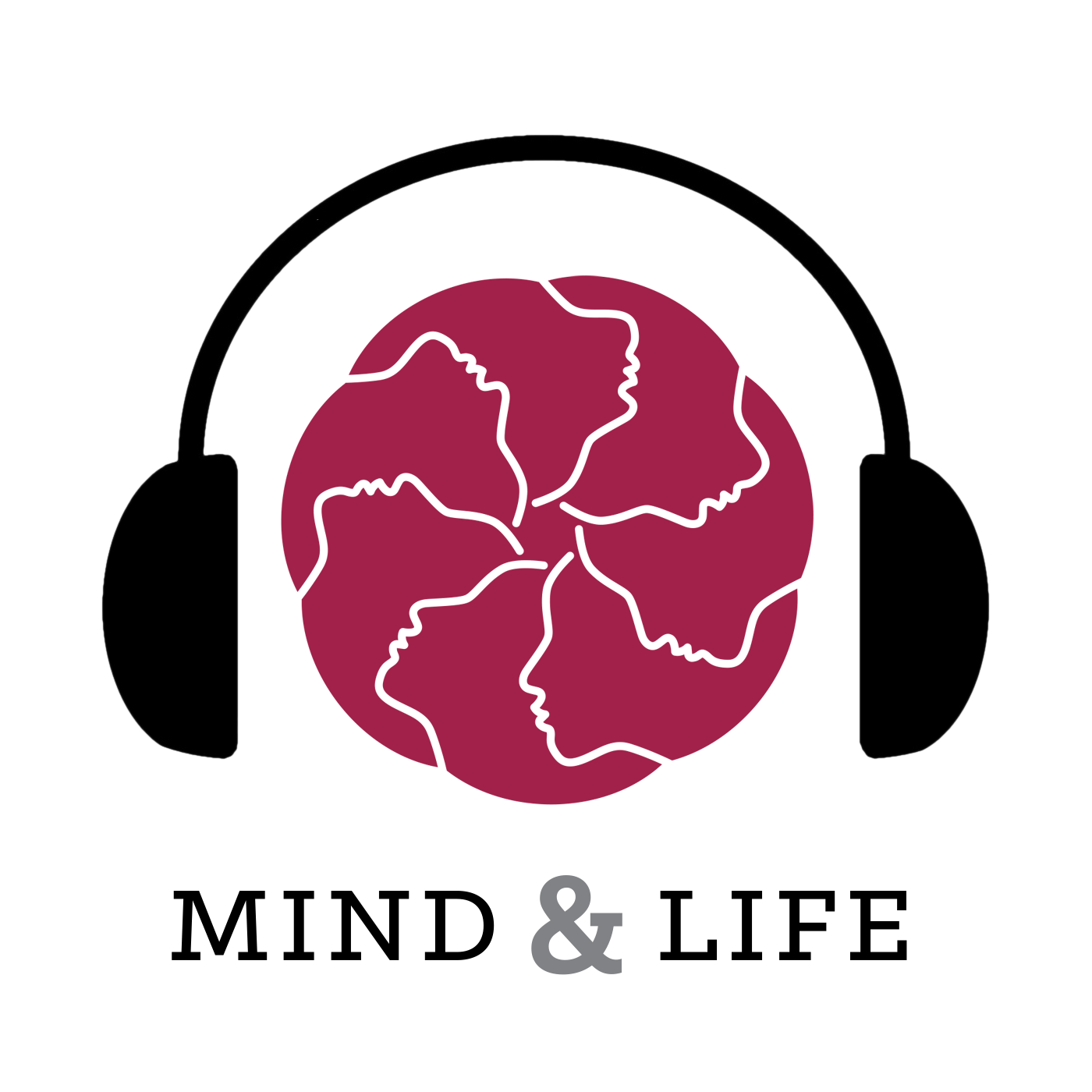 Mind & LifeLasana Harris - Flexible Social CognitionIn this episode, Wendy speaks with social neuroscientist Lasana Harris about his work on flexible social cognition—the variable ways that we perceive others. This conversation covers many topics, including:
his accidental entry into psychology;
what flexible social cognition is;
schemas and predictions about others' minds;
dehumanization and why we do it;
the role of propaganda and implications for the war in Ukraine;
how these processes scale up from individuals to societies;
bias and prejudice, and the key roles of threat and safety;
the inseparability of cognition and emotion;
how contemplative practice might help reduce dehumanization;
information overload an...2022-05-201h 02
Mind & LifeLasana Harris - Flexible Social CognitionIn this episode, Wendy speaks with social neuroscientist Lasana Harris about his work on flexible social cognition—the variable ways that we perceive others. This conversation covers many topics, including:
his accidental entry into psychology;
what flexible social cognition is;
schemas and predictions about others' minds;
dehumanization and why we do it;
the role of propaganda and implications for the war in Ukraine;
how these processes scale up from individuals to societies;
bias and prejudice, and the key roles of threat and safety;
the inseparability of cognition and emotion;
how contemplative practice might help reduce dehumanization;
information overload an...2022-05-201h 02 Stanford Psychology Podcast44 - Lasana Harris: Moving Beyond Stereotypes When Encountering StrangersJoseph chats with Dr. Lasana Harris about how using traits rather than stereotypes when thinking about strangers can help combat social bias. They also address questions like when is it useful to make a situational versus a dispositional attribution, what are the differences between social and personality psychology, and some advice for academics entering psychology.Dr. Harris is a Professor of Social Neuroscience in Experimental Psychology at University College London. He got his undergraduate degree from Howard University and his phD from Princeton University. His research uses a social neuroscience approach to explore the neural correlates...2022-05-0553 min
Stanford Psychology Podcast44 - Lasana Harris: Moving Beyond Stereotypes When Encountering StrangersJoseph chats with Dr. Lasana Harris about how using traits rather than stereotypes when thinking about strangers can help combat social bias. They also address questions like when is it useful to make a situational versus a dispositional attribution, what are the differences between social and personality psychology, and some advice for academics entering psychology.Dr. Harris is a Professor of Social Neuroscience in Experimental Psychology at University College London. He got his undergraduate degree from Howard University and his phD from Princeton University. His research uses a social neuroscience approach to explore the neural correlates...2022-05-0553 min Curious Apes#14 - Lasana Harris: Social Cognition, Dehumanization, & the Culture WarsLasana is an associate professor of experimental psychology at the University College London where he runs the boundaries of social cognition lab. In addition to exploring the content of his 2017 book, Invisible Mind: Flexible Social Cognition and Dehumanization, we also explore how these concepts are in play in modern society, especially as it relates to the culture wars and societal issues.
**
Hosted & Produced by: Steven Parton - Twitter - Instagram2022-01-0951 min
Curious Apes#14 - Lasana Harris: Social Cognition, Dehumanization, & the Culture WarsLasana is an associate professor of experimental psychology at the University College London where he runs the boundaries of social cognition lab. In addition to exploring the content of his 2017 book, Invisible Mind: Flexible Social Cognition and Dehumanization, we also explore how these concepts are in play in modern society, especially as it relates to the culture wars and societal issues.
**
Hosted & Produced by: Steven Parton - Twitter - Instagram2022-01-0951 min![Fundação (FFMS) - [IN] Pertinente](https://storage.buzzsprout.com/4mgyrmi8i81sr1ttpwghmonbg76t?.jpg) Fundação (FFMS) - [IN] PertinenteEP 30 | SOCIEDADE | Conseguimos olhar a pobreza de frente?Há que reconhecer: a pobreza é algo que assusta o mais comum dos mortais. Assusta-nos o conceito, assusta-nos a possibilidade, assusta-nos olhar para aqueles que vemos como ‘pobres’. Até o nosso cérebro assobia para o lado perante a imagem de pessoas que associamos como parte do ‘grupo dos pobres’. Mas será que sabemos mesmo o que é a pobreza?Para o bem e para o mal, a Ana Markl e o Rui Costa Lopes vão ajudar-nos a desmistificar a pobreza, demonstrando que é algo muito mais próximo de todos nós, algo que ‘não acontece só aos outro...2021-11-0547 min
Fundação (FFMS) - [IN] PertinenteEP 30 | SOCIEDADE | Conseguimos olhar a pobreza de frente?Há que reconhecer: a pobreza é algo que assusta o mais comum dos mortais. Assusta-nos o conceito, assusta-nos a possibilidade, assusta-nos olhar para aqueles que vemos como ‘pobres’. Até o nosso cérebro assobia para o lado perante a imagem de pessoas que associamos como parte do ‘grupo dos pobres’. Mas será que sabemos mesmo o que é a pobreza?Para o bem e para o mal, a Ana Markl e o Rui Costa Lopes vão ajudar-nos a desmistificar a pobreza, demonstrando que é algo muito mais próximo de todos nós, algo que ‘não acontece só aos outro...2021-11-0547 min The Decision CornerConfronting our (Un)conscious Bias with Dr Lasana HarrisUCL Professor of Behavioral Science Dr Lasana Harris joins Brooke for this episode of the podcast. In a fascinating discussion that questions the ‘unconscious’ nature of what most psychologists would refer to as unconscious bias, Dr Harris draws from research in the fields of neuroscience and social psychology to help explain why human beings experience bias, how it manifests in our behaviour, and what we can do to overcome it, beyond ‘box-checking’ debias training.
Some of the things discussed include…
The neuroscience behind the origins of our bias. Hint: it relates to our natural ‘fight or flight’ r...2021-08-0240 min
The Decision CornerConfronting our (Un)conscious Bias with Dr Lasana HarrisUCL Professor of Behavioral Science Dr Lasana Harris joins Brooke for this episode of the podcast. In a fascinating discussion that questions the ‘unconscious’ nature of what most psychologists would refer to as unconscious bias, Dr Harris draws from research in the fields of neuroscience and social psychology to help explain why human beings experience bias, how it manifests in our behaviour, and what we can do to overcome it, beyond ‘box-checking’ debias training.
Some of the things discussed include…
The neuroscience behind the origins of our bias. Hint: it relates to our natural ‘fight or flight’ r...2021-08-0240 min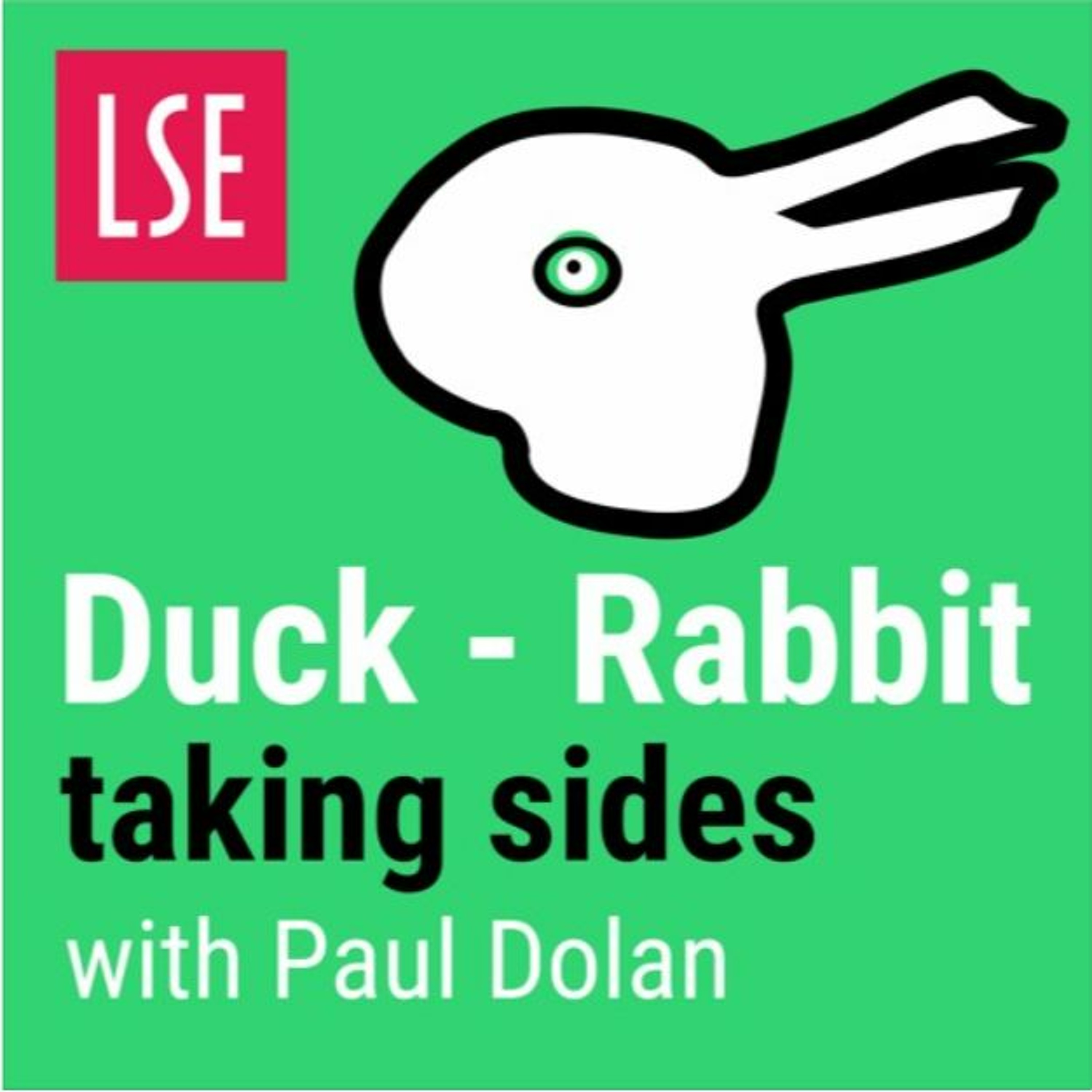 LSE PodcastsWhy do we disagree?In this bonus episode, recorded in front of a live virtual audience, Professor Paul Dolan and his guests discuss the neuroscience and social science behind the polarisation problem. Why do we take sides on so many issues? What makes us want to be part of one group and not another? What drives our judgements, choices and assumptions?
Paul was joined by his LSE colleague Dr Jennifer Sheehy Skeffington, and fellow academics Dr Lasana Harris from University College London, Professor Anil Seth from the University of Sussex, and Dr Tiffany Watt Smith from Queen Mary University.2021-07-3025 min
LSE PodcastsWhy do we disagree?In this bonus episode, recorded in front of a live virtual audience, Professor Paul Dolan and his guests discuss the neuroscience and social science behind the polarisation problem. Why do we take sides on so many issues? What makes us want to be part of one group and not another? What drives our judgements, choices and assumptions?
Paul was joined by his LSE colleague Dr Jennifer Sheehy Skeffington, and fellow academics Dr Lasana Harris from University College London, Professor Anil Seth from the University of Sussex, and Dr Tiffany Watt Smith from Queen Mary University.2021-07-3025 min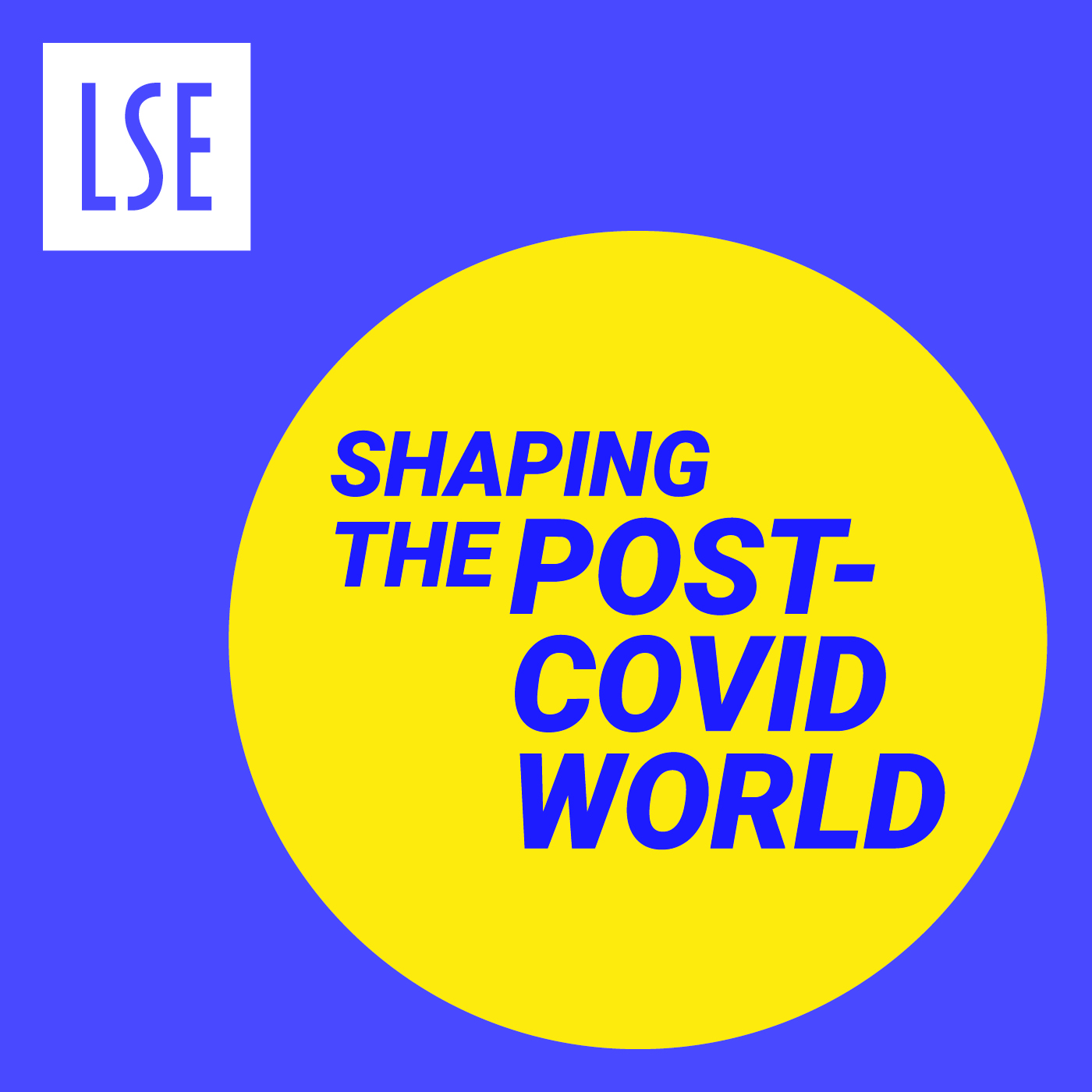 Shaping the Post-COVID WorldSHORTCAST | Duck – Rabbit: what drives our polarised culture?Contributor(s): Dr Lasana Harris, Professor Anil Seth, Dr Jennifer Sheehy Skeffington, Dr Tiffany Watt Smith, Professor Paul Dolan | This is an event shortcast, a digested version of our live online public events series. This event was recorded on 28th June 2021. A full version is available to download on the LSE player.2021-07-3025 min
Shaping the Post-COVID WorldSHORTCAST | Duck – Rabbit: what drives our polarised culture?Contributor(s): Dr Lasana Harris, Professor Anil Seth, Dr Jennifer Sheehy Skeffington, Dr Tiffany Watt Smith, Professor Paul Dolan | This is an event shortcast, a digested version of our live online public events series. This event was recorded on 28th June 2021. A full version is available to download on the LSE player.2021-07-3025 min Duck - RabbitWhy do we disagree?In this bonus episode, recorded in front of a live virtual audience, Professor Paul Dolan and his guests discuss the neuroscience and social science behind the polarisation problem. Why do we take sides on so many issues? What makes us want to be part of one group and not another? What drives our judgements, choices and assumptions? Paul was joined by his LSE colleague Dr Jennifer Sheehy Skeffington, and fellow academics Dr Lasana Harris from University College London, Professor Anil Seth from the University of Sussex, and Dr Tiffany Watt Smith from Queen Mary University.2021-07-2725 min
Duck - RabbitWhy do we disagree?In this bonus episode, recorded in front of a live virtual audience, Professor Paul Dolan and his guests discuss the neuroscience and social science behind the polarisation problem. Why do we take sides on so many issues? What makes us want to be part of one group and not another? What drives our judgements, choices and assumptions? Paul was joined by his LSE colleague Dr Jennifer Sheehy Skeffington, and fellow academics Dr Lasana Harris from University College London, Professor Anil Seth from the University of Sussex, and Dr Tiffany Watt Smith from Queen Mary University.2021-07-2725 min Shaping the Post-COVID WorldDuck – Rabbit: what drives our polarised culture?Contributor(s): Dr Lasana Harris, Professor Anil Seth, Dr Jennifer Sheehy Skeffington, Dr Tiffany Watt Smith, Professor Paul Dolan | Join Paul Dolan and his guests to launch the latest series of his podcast, Duck - Rabbit, with a discussion of the neuroscience and social science behind our polarisation problem. Why do we respond to the world in one way and not another? What makes us want to be, or feel, part of a group? What drives our judgements, choices and assumptions?
Think of this: you’re shown a picture, it's black and white and sort of blurry, and you are as...2021-06-281h 07
Shaping the Post-COVID WorldDuck – Rabbit: what drives our polarised culture?Contributor(s): Dr Lasana Harris, Professor Anil Seth, Dr Jennifer Sheehy Skeffington, Dr Tiffany Watt Smith, Professor Paul Dolan | Join Paul Dolan and his guests to launch the latest series of his podcast, Duck - Rabbit, with a discussion of the neuroscience and social science behind our polarisation problem. Why do we respond to the world in one way and not another? What makes us want to be, or feel, part of a group? What drives our judgements, choices and assumptions?
Think of this: you’re shown a picture, it's black and white and sort of blurry, and you are as...2021-06-281h 07 Psychology Is Podcast26: Lasana Harris | Social Cognition and DehumanizationDr. Lasana Harris joins us on the 26th episode of the Psychology Is Podcast for a conversation about social cognition, the flexible use of social cognition, and the psychology of dehumanization.2021-06-151h 15
Psychology Is Podcast26: Lasana Harris | Social Cognition and DehumanizationDr. Lasana Harris joins us on the 26th episode of the Psychology Is Podcast for a conversation about social cognition, the flexible use of social cognition, and the psychology of dehumanization.2021-06-151h 15 On OpinionThe Neuroscience of Dehumanisation, with Lasana Harris“Dehumanisation is a psychological process, and every psychological process can be used for good or bad.”Humanisation (attributing motive and consciousness) and dehumanisation are flip sides of common cognitive processes, what Harris calls “Flexible Social Cognition”, which he has measured via fMRI scans.“I think of dehumanization much more as an everyday psychological phenomenon”Neurologically, dehumanisation is the ability to regulate one’s own social cognition. We grant more ‘humanity’ to our friends than the bad driver in front of us. And in certain professional contexts, dehumanising is a good thing: to small degrees, doctors do it their patients bet...2021-05-1940 min
On OpinionThe Neuroscience of Dehumanisation, with Lasana Harris“Dehumanisation is a psychological process, and every psychological process can be used for good or bad.”Humanisation (attributing motive and consciousness) and dehumanisation are flip sides of common cognitive processes, what Harris calls “Flexible Social Cognition”, which he has measured via fMRI scans.“I think of dehumanization much more as an everyday psychological phenomenon”Neurologically, dehumanisation is the ability to regulate one’s own social cognition. We grant more ‘humanity’ to our friends than the bad driver in front of us. And in certain professional contexts, dehumanising is a good thing: to small degrees, doctors do it their patients bet...2021-05-1940 min UCL Sarah Parker Remond Centre PodcastWhat Does Eugenics Mean To Us? Episode 3: The legacy of Cyril BurtTwo of the fields where eugenic thinking had an enormous influence, and where some of its legacies continue to hold sway are Psychology and Education Studies. An influential figure in both those fields was a former UCL Professor of Psychology, Sir Cyril Burt. In this episode Subhadra and her guests wade through Burt’s legacy and reflect on how to confront and confound eugenic thinking in both these fields.Transcript: www.ucl.ac.uk/racism-racialisation/transcript-what-does-eugenics-mean-us-episode-3This conversation was recorded on 31st March 2021Host: Subhadra Das, Critical Eugenics Researcher, UCL Sara...2021-05-1232 min
UCL Sarah Parker Remond Centre PodcastWhat Does Eugenics Mean To Us? Episode 3: The legacy of Cyril BurtTwo of the fields where eugenic thinking had an enormous influence, and where some of its legacies continue to hold sway are Psychology and Education Studies. An influential figure in both those fields was a former UCL Professor of Psychology, Sir Cyril Burt. In this episode Subhadra and her guests wade through Burt’s legacy and reflect on how to confront and confound eugenic thinking in both these fields.Transcript: www.ucl.ac.uk/racism-racialisation/transcript-what-does-eugenics-mean-us-episode-3This conversation was recorded on 31st March 2021Host: Subhadra Das, Critical Eugenics Researcher, UCL Sara...2021-05-1232 min UCL Institute of Advanced StudiesWhat Does Eugenics Mean To Us? Episode 3: The legacy of Cyril BurtTwo of the fields where eugenic thinking had an enormous influence, and where some of its legacies continue to hold sway are Psychology and Education Studies. An influential figure in both those fields was a former UCL Professor of Psychology, Sir Cyril Burt. In this episode Subhadra and her guests wade through Burt’s legacy and reflect on how to confront and confound eugenic thinking in both these fields.
Transcript: www.ucl.ac.uk/racism-racialisation/transcript-what-does-eugenics-mean-us-episode-3
This conversation was recorded on 31st March 2021
Host: Subhadra Das, Critical Eugenics Researcher, UCL Sarah Parker Remond Centre
Guests: If you believe what you re...2021-05-1232 min
UCL Institute of Advanced StudiesWhat Does Eugenics Mean To Us? Episode 3: The legacy of Cyril BurtTwo of the fields where eugenic thinking had an enormous influence, and where some of its legacies continue to hold sway are Psychology and Education Studies. An influential figure in both those fields was a former UCL Professor of Psychology, Sir Cyril Burt. In this episode Subhadra and her guests wade through Burt’s legacy and reflect on how to confront and confound eugenic thinking in both these fields.
Transcript: www.ucl.ac.uk/racism-racialisation/transcript-what-does-eugenics-mean-us-episode-3
This conversation was recorded on 31st March 2021
Host: Subhadra Das, Critical Eugenics Researcher, UCL Sarah Parker Remond Centre
Guests: If you believe what you re...2021-05-1232 min The Arts ShowEpisode #54: Highlights #6Tonight's episode of The Arts Show is a highlights show featuring Pam Elise Harris, Ruth Perkins, Mark Page, Crina Cristea, France Ellul, Lasana Shabazz, Madeleine Swann, Andy Leonard and Ant Lightfoot.With music by Waterfahl, Weaponry, Straight Eight, Jordanna Blake Music, Tom Bradley Jr. and France Ellul, plus part two of Amorphophallus Titanium by Dane Cobain and read by Suzie Q Demarco and an album review from Twangling Jack Ford!2021-04-1359 min
The Arts ShowEpisode #54: Highlights #6Tonight's episode of The Arts Show is a highlights show featuring Pam Elise Harris, Ruth Perkins, Mark Page, Crina Cristea, France Ellul, Lasana Shabazz, Madeleine Swann, Andy Leonard and Ant Lightfoot.With music by Waterfahl, Weaponry, Straight Eight, Jordanna Blake Music, Tom Bradley Jr. and France Ellul, plus part two of Amorphophallus Titanium by Dane Cobain and read by Suzie Q Demarco and an album review from Twangling Jack Ford!2021-04-1359 min What Works?What Works...With Lasana HarrisSophie Scott talks to Dr Lasana Harris about his scientific career, changing countries, interdisciplinarity and life at UCL. Lasana has done pioneering work in the fields of social neuroscience and in applying scientific research to policy.2020-04-1345 min
What Works?What Works...With Lasana HarrisSophie Scott talks to Dr Lasana Harris about his scientific career, changing countries, interdisciplinarity and life at UCL. Lasana has done pioneering work in the fields of social neuroscience and in applying scientific research to policy.2020-04-1345 min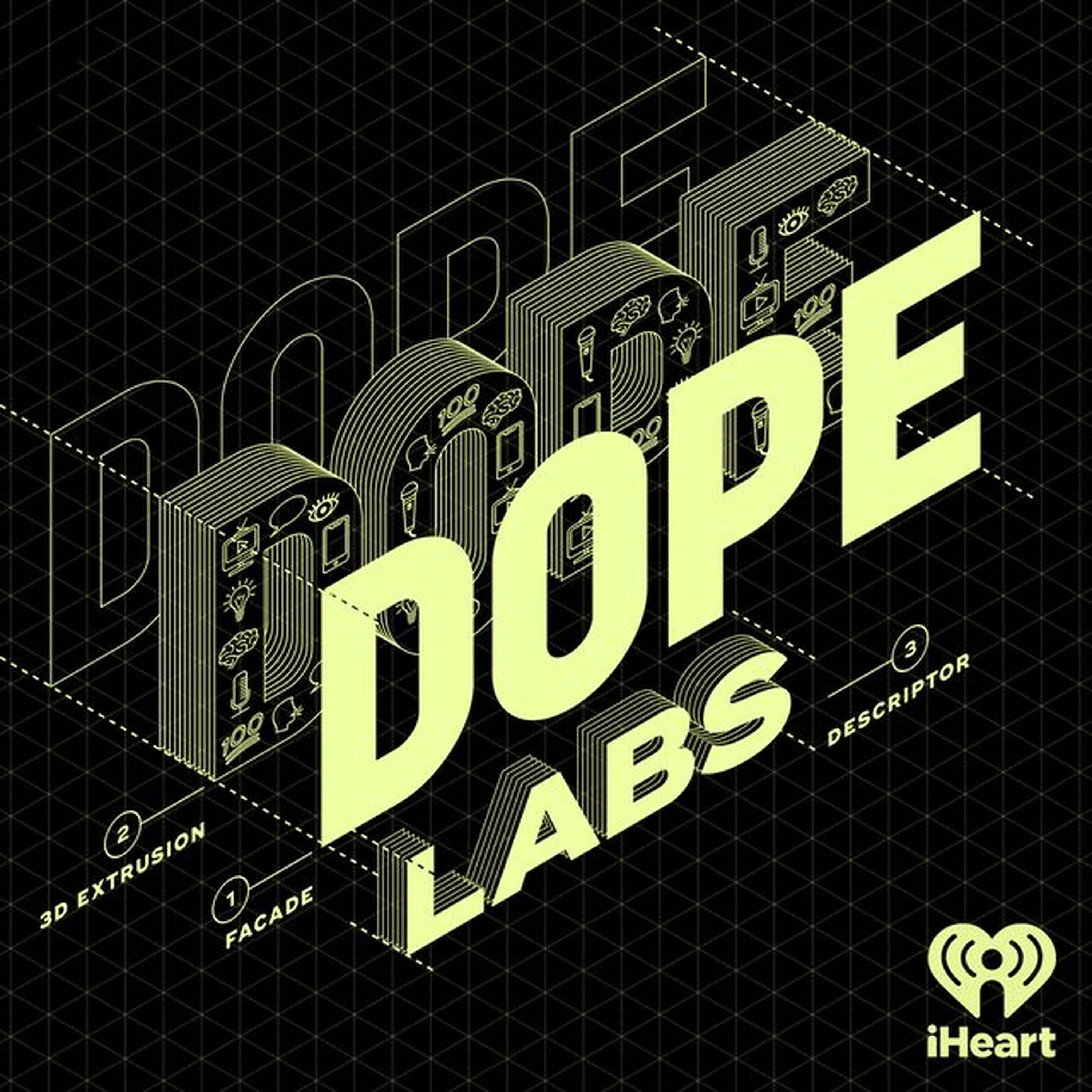 Dope LabsLab 014: Art of ConWhether it’s robocalls, catfishing, Tekashi 6ix9ine, or Aunt Becky - it seems like everyone is out here scamming!! But why do WE keep falling for them? We turned to Dr. Lasana Harris to help us understand human motivations and interpersonal behaviors making us susceptible to these schemes. Learn more about your ad choices. Visit megaphone.fm/adchoicesSee omnystudio.com/listener for privacy information.2019-09-2628 min
Dope LabsLab 014: Art of ConWhether it’s robocalls, catfishing, Tekashi 6ix9ine, or Aunt Becky - it seems like everyone is out here scamming!! But why do WE keep falling for them? We turned to Dr. Lasana Harris to help us understand human motivations and interpersonal behaviors making us susceptible to these schemes. Learn more about your ad choices. Visit megaphone.fm/adchoicesSee omnystudio.com/listener for privacy information.2019-09-2628 min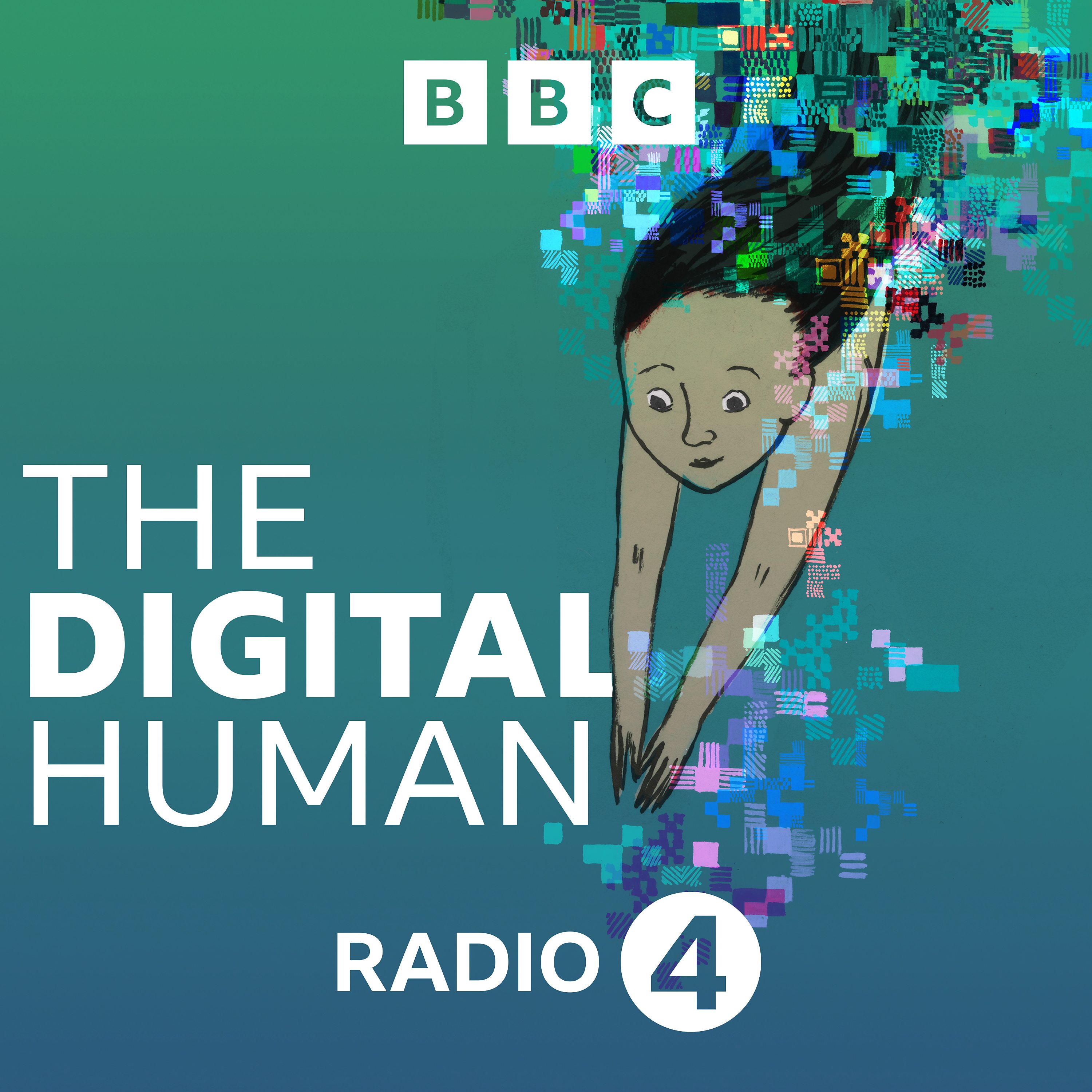 The Digital HumanHarmSarah from Ohio went online to escape bullies at her school but they followed her online and the abuse continued. She hoped someone would step in and help her but her attempt at a cry for help was ignored. We also hear from Vie Clerc Lusandu who was attacked, with her son on a train travelling from London to Leeds. Vie is still trying to comprehend why on a packed train it took ten minutes for someone to come to her aid. Dr Lasana Harris an experimental psychologist from University Collage London explains that people...2018-10-0128 min
The Digital HumanHarmSarah from Ohio went online to escape bullies at her school but they followed her online and the abuse continued. She hoped someone would step in and help her but her attempt at a cry for help was ignored. We also hear from Vie Clerc Lusandu who was attacked, with her son on a train travelling from London to Leeds. Vie is still trying to comprehend why on a packed train it took ten minutes for someone to come to her aid. Dr Lasana Harris an experimental psychologist from University Collage London explains that people...2018-10-0128 min Podcast MeanderAmerican SirensDan’s guardian angel attempts to guide him through a sudden, confounding spell of memory loss. **This episode contains many sequences which are best enjoyed through headphones.** Featured: Dr. Lasana Harris is a psychologist at the University College London. He researches, among other things, a phenomenon known as dehumanization—which is the human tendency to completely ignore the minds of other people. For more information about his work, visit: http://www.ucl.ac.uk/pals/research/experimental-psychology/person/lasana-harris/ Credits: Gratitude to Dr. Lasana Harris for his interview.2017-01-1949 min
Podcast MeanderAmerican SirensDan’s guardian angel attempts to guide him through a sudden, confounding spell of memory loss. **This episode contains many sequences which are best enjoyed through headphones.** Featured: Dr. Lasana Harris is a psychologist at the University College London. He researches, among other things, a phenomenon known as dehumanization—which is the human tendency to completely ignore the minds of other people. For more information about his work, visit: http://www.ucl.ac.uk/pals/research/experimental-psychology/person/lasana-harris/ Credits: Gratitude to Dr. Lasana Harris for his interview.2017-01-1949 min